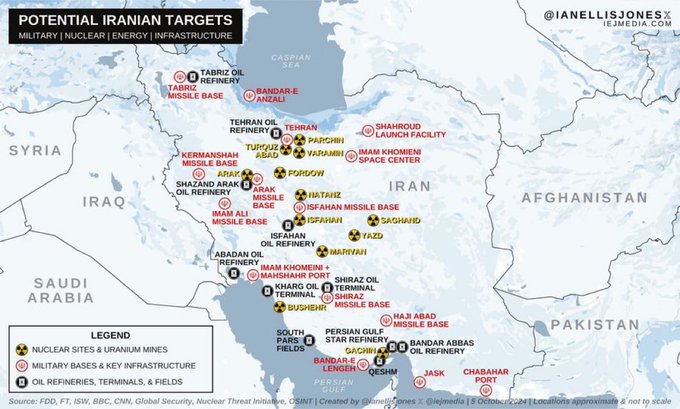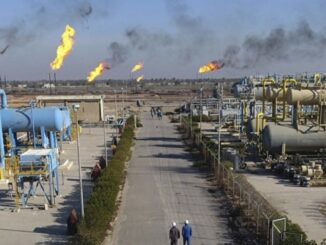
-
Small-Scale Attack: If the attack is limited and only affects a small portion of Iran’s oil output, experts suggest oil prices could rise by 5-10%. This scenario might reduce Iran’s output by 10-20%, leading to short-term price hikes due to immediate supply concerns but possibly stabilizing after markets adjust.
-
Major Refinery or Export Terminal Attack: A more substantial attack on key infrastructure like refineries or the Kharg Island could cut Iran’s oil production by 30-50%. This could push oil prices towards or even surpassing $100 per barrel, with an increase of about 10-15% due to the significant loss of supply capacity and the psychological impact on markets.
-
Full-Scale Attack: Should Israel opt for a comprehensive strike affecting most of Iran’s oil infrastructure, potentially reducing its output by 50-75%, oil prices might surge by 20-30%. Analysts have mentioned prices could reach between $120-150 per barrel or even higher in extreme scenarios, especially if there’s a risk of retaliation affecting broader Middle Eastern oil production or shipping routes like the Strait of Hormuz.
-
Market Sentiment: Beyond the physical oil supply, market sentiment plays a significant role. The fear of escalation, potential closure of the Strait of Hormuz, or broader regional conflict could lead to speculative trading, pushing prices up even before actual supply disruptions occur.
-
Global Response: The reaction of other oil-producing countries, especially OPEC+, could mitigate or exacerbate the price surge. If OPEC+ decides to increase production to stabilize markets, this might cap the price increase. Conversely, any hesitance or political maneuvers might allow prices to climb higher.
-
Long-term Effects: Over time, if production from Iran or other regions isn’t restored quickly, sustained higher prices could lead to increased production elsewhere, eventually balancing the market. However, the immediate aftermath would see significant volatility.
If you’re curious why Iran-linked violence in the Middle East has spiraled in the past few years, this chart of Iranian oil production helps explain the funding source and a root cause: https://t.co/FER7eFcDo0
— Josh Young (@Josh_Young_1) October 5, 2024
During the Biden Administration, not only US crude exports hit record, but Iran’s crude exports too!
On weekly basis, Iran’s crude exports reached their highest level in decades two weeks ago! #Iran #Oil https://t.co/qr04YCBHtQ— Anas Alhajji (@anasalhajji) October 6, 2024
I’ve done a quick map to distill down the complicated situation in the Middle East
Pretty much everyone in the red circle hate each other and anywhere could go bang at any moment
I hope this helps pic.twitter.com/go6VofqNzv
— Dan Salt (@Danjsalt) January 18, 2024


Sources: Grok on X,






